We Are Malala is an imagined dialogue between Nobel Peace winner Malala Yousafzai and the poet about historical, cultural and spiritual themes. Malala’s autobiography, I Am Malala, inspired this collection. Judaism, Islam and Christianity are in increasingly and dangerously hot conflict. This volume of poetry, also inspired by Karen Armstrong and Sally Armstrong, two unrelated conciliators/activists, attempts to bridge the gap between those religions through dialogue and respect for other belief systems. This collection also includes artwork by the poet.
“In We Are Malala, accomplished poet Katerina Fretwell deftly compares and contrasts her path as a western young woman coming of age in the seventies to that of Malala Yousafzai, the young, Pakistani, Islamic advocate for the education of girls who won the Nobel Prize at the age of seventeen in 2012. Through the urgent flow of tightly interwoven Urdu-like couplets, west meets east, sister meets sister. Two histories of emerging feminism in different cultures intertwine. Fretwell’s tribute to and celebration of Malala and her legacy expands to address the oppression of all people, commenting on the colonization of First Nations and abuses of the residential schools. Kat’s and Malala’s stories move readers from an “”I”” to a “”we”” perspective, enabling us to experience though the power of poetry the subtle and inextricable ways in which “”United we thrive, divided we die./ All souls. All sentience.//””Sentenced to prescience, We Are Malala.”
—Susan McCaslin, author of Into the Open: Poems New and Selected,
“Katerina Fretwell’s We Are Malala is a celebration of shared identity as healing. Its breaths are ritual, personal, universal, and ecstatic. It lays itself down as a steady walk, with linked arms, into the darkness of the assassin’s rifle barrel, giving it the light of bodily presence and continued life. It begs to be sung.”
—Harold Rhenisch, author of Two Minds
“Katerina Fretwell’s We Are Malala entwines Malala Yousafzai’s courageous life and struggles with the poet’s own, then broadens to consider many historic and contemporary injustices, especially toward women. Malala, a young woman who resisted and changed the world, becomes an emblem of what we all might strive for. An ambitious, powerful book.”
—Elizabeth Greene, author of Moving and A Season Among Psychics
“This tribute to an outstanding leader in the worldwide struggle for gender equality is deeply informed by the poet’s own struggles. Katerina Fretwell weaves Malala’s life story with hers in a tender dance of passionate youth and committed wisdom. A song of hope.”
—Susan McMaster, author of Until The Light Bends
“In her book, We Are Malala, Katerina Vaughan Fretwell champions the importance of the meeting of minds in a post-9/11 world troubled by the impulse to break into mutually exclusive hate-filled groups of us and them. To what might we aspire in this violent world? Fretwell reminds us how the poet of today might leave us a hint of the truth, not be found in mere information, but truth eternal, abiding, consoling, and hopeful, as she writes in the closing lines of her final poem, the heroic and eponymous “”We Are Malala””: “”United we thrive, divided we die./All souls. All sentience./ Sentenced to prescience, We Are Malala.”
—John B. Lee, Poet Laureate of the city of Brantford in perpetuity, Poet Laureate of Norfolk County for life

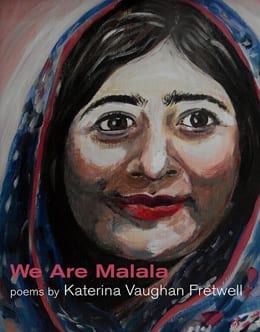
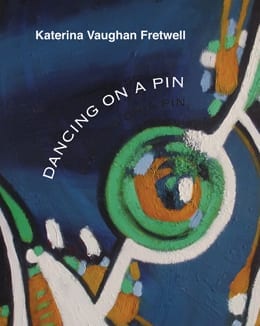
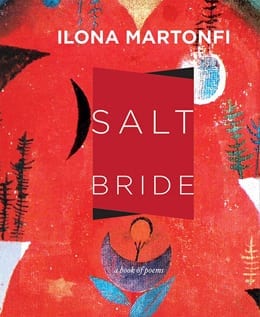
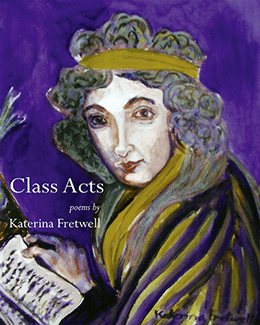
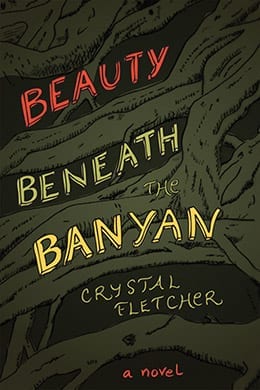

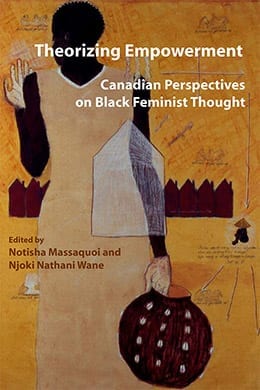
Renée Knapp –
We Are Malala by Katerina Vaughan Fretwell
reviewed by April Bulmer
Verse Afire – January 2020
Malala Yousafzai, also known as Malala, is a young Pakistani human rights advocate who is known for her heroic support of education for women and children in her native northwest Pakistan. At age 15, while on a bus in the Swat District, Malala and two other girls were shot by a Taliban gunman in an assassination attempt to silence her activism. Malala, hit in the head with a bullet, remained unconscious and in critical condition in a hospital in Pakistan but later improved when transferred to Birmingham, UK. Malala’s story inspired international support and eventually earned her a 2014 Nobel Prize, and the historical honour of being the youngest to receive it. She has since founded the Malala Fund, a non-profit organization that lobbies for the right to education, and co-authored an international best seller called I Am Malala.
Now, Canadian poet and artist Katerina Vaughan Fretwell has responded to the young martyr’s activities and writings in her own book called We Are Malala. In it, Fretwell, a former choir member, croons to Malala directly through her poems. This poetry might resonate with many who hum both the mournful tunes and emerging anthems of cultures grappling with feminism and historical injustices. Woven like the fine cloth of a hijab, Fretwell’s poetry is the fabric of gender, religion, politics and art.
While she, herself, practices an eclectic spirituality leaning at times toward paganism (“Once all women could talk to trees,” she writes. “I still chant to forests…”) she dances gracefully with Malala, who was raised Sunni Muslim. Fretwell steps lightly toward her, bows as though a partner in complicated choreography of east meets west.
“[L]et’s bridge / our two solitudes,” she writes and draws parallels between herself and Malala, who was named after a female poet and warrior from southern Afghanistan. The name means “grief-stricken,” she tells us, but Malala blooms bright in Fretwell’s work, and she is drawn to her “like bee to nectar.” Both women were born Cancer the Crab, Fretwell says, and describes the two feminists as “crustaceans swimming – [she,] upstream, [Malala,] in riptides.” Crabs are sensitive moon creatures who sometimes scuttle through shadowy waters. Fretwell, for instance, feels the pain of Canadian Indigenous women, “Missing Sisters,” she hears inside her shell, “all 1,500 souls…crying out.”
Later, Fretwell returns to her Christian roots. She and Malala are both “People of the Book,” she writes. “We are Word fleshed, / you and I, We love our Logos, / Abraham launching our lineage / of prophets tongue-harping / us into faith.” But she is able to deftly shift between many faiths, often appealing to Goddess figures: Lilith, Mary and Demeter, to name a few. “We form a
circle. / Always moving,” she says.
The text moves quickly, too, often flowing with Fretwell’s thorough knowledge of history and politics – both pre and post 9/11. “bin Laden’s ghost hovers” in her poems, a “shade” she wonders if Malala sees, too.
Fortunately, Malala herself is not a spectre in our world despite over eight hours of delicate surgery after the shooting to repair a facial nerve and remove bone fragments. Her smiling face is rendered several times in the book by Fretwell, an accomplished artist. There is a self-portrait of Katerina Vaughan Fretwell, too. A self-described “old soul,” the painting suggests the muted colours of a spirit who runs deep with tributaries of troubled world history. But there are streaks of light in her hair, also. Next to this image, is an appeal to the daughters of the world. She declares, “We are Malala.” For the story of Pakistan’s Mother Teresa, as she describes her, is a triumphant hymn for all her sisters to lift their voices and sing
Renée Knapp –
We Are Malala by Katerina Vaughan Fretwell
reviewed by Kate Marshall Flaherty – September 2019
Katerina Fretwell’s compelling book of poetry, We Are Malala is a powerful and necessary collection for our times. Comparing and contrasting her own life to that of 2012 Nobel prize-winning Malala Yousafzai, Fretwell contemplates diversity while finding common ground, asserting “we are not worlds apart.“
Confessional in tone at times, these poems keep their edge with a spare tension and economy of words. Fretwell examines bits of text and scripture from many faith traditions and finds her own way to belief—in social justice and action.
Fretwell explores the multifaceted faces of the “defused F word: feminism” and intertwines her own struggles with those of young Yousafzai, shot for standing up for girl’s education. Both find strength in education that, as they both believe, “does not westernize,” but rather “humanizes.”
Often written in couplets that pay tribute to the ancient Persian poetic form, these poems explore parallels in the lives of poet and hero, both emerging into advocacy for equality. Fretwell does not shy away from horrific images of historic and contemporary brutality and abuse, particularly against women, “Ghazals capture mood, but often/brood over, rather than soften, our trials,“ yet the poet continues to weave compassion, and an overall sense of one-ness and wonder into her challenging poems. Paired with her powerful lines are several of Fretwell’s vibrant and evocative portraits— of Malala and herself.—reinforcing their common reflections and mirroring their separate, yet similar, struggles.
The poet asks: “how do we rise above water torture” in a world where “action is our distraction, “where “our culture [is] sick, “ where, “brother [is] sub humanized into other“ —? The answer emerges in the triple repeated forgiveness Malala offers her persecutors. This refusal to see even persecutors as other, inspires poet, reader and the world. Fretwell celebrates and emulates Yousafzai’s “open raw hope”—a hope so needed in our world today. Indeed, in her simple and direct couplets, Fretwell implores “let us not/become what we fear. “ What a message for these times!
In the end, through her unflinching exploration of ancient and modern injustices, Fretwell challenges us, to “form a circle./Always moving“ towards recognition of our inter-connectedness, where we can celebrate when “sometimes our world spins it right. “
Fretwell’s golden rule manifesto parallels Malala’s: “United we thrive, divided we die./All souls. All sentience.“ In this age of borders and bombs, We Are Malala invites us to join the movement that strives for human commonality with compassion—to evolve from either/or to both/and—and to stretch from me to we. In her spare and striking couplets, Fretwell reminds us “we are [all] Malala.
Renée Knapp –
We Are Malala: poems and art by Katerina Vaughan Fretwell
A Canadian artist muses on Malala Yousafzai in poetic dialogue
reviewed by Penn Kemp
League of Canadian Poets – March 6, 2020
http://poets.ca/2020/03/06/we-are-malala/
“We realize the importance of our voices only when we are silenced.”
—Malala Yousafzai
On the day I read Katerina Vaughan Fretwell’s We Are Malala, a photo appears on my screen’s feed: Malala Yousafzai meets youth activist Greta Thunberg for the first time. Malala and Greta become instant fast friends, and no wonder. Both young women have addressed the United Nations on their respective causes (climate change and girl’s education). When Malala was 17, she won the Nobel Peace Prize. Herself now 17, Greta too has been nominated for this high honour. Malala posts the two them, arms around one other. Her caption reads: “Thank you, @gretathunberg” along with a heart emoji.
CNN reports on the meeting of the world’s two most renowned young activists:
Greta Thunberg visited Malala Yousafzai at the University of Oxford, where the Pakistani activist is a senior. Thunberg is in the UK for a school strike planned for later this week.
Admiration between the two activists was mutual.
“So … today I met my role model,” Thunberg tweeted. “What else can I say?”
“She’s the only friend I’d skip school for,” Yousafzai quipped.*
The dialogue between these young women drew me back to Katerina Vaughan Fretwell’s We Are Malala: poems and art. The connection is appropriate because Fretwell creates a similar evocation of female friendship: hers is by proxy, through the media. Her collection of poems sets up a dialogue between Malala and Fretwell’s own personal history, though the two have never met. Fretwell intertwines her stories with the large context of Malala’s. How do their stories connect, as young women growing up in different times, different continents? What are the disconnects? Fretwell’s education as a girl is assured in ways that Malala’s never was, but as Fretwell succinctly displays, the similarities of female disempowerment are shocking, despite the poet’s apparent privilege.
It’s essential for women to tell their stories in whatever form best suits. Fretwell’s primary medium is poetry— breathless poems in short lines, reminiscent of the Urdu poetry that Malala might recognize. The poems form an urgent inquiry that Fretwell and Malala share. How does a young woman adapt to the culture in which she was raised? How can she change the culture in which she is immersed? Both Malala and Fretwell leave their country of birth, for another, safer, saner place. Malala’s exile is involuntary: after the gunshot wound that nearly killed her, she awoke to emergency treatment in Birmingham, England. Fretwell in political protest left the U.S. for Canada, where she still (proudly) resides.
Political poetry is difficult to write because it all too easily swerves into didactic, self-righteous polemics. A good poem follows sound and language itself, leading both the poet and the reader/listener into new and surprising exploration. A political poem tends toward rant, set on the rigid track of a pre-conceived idea or conviction that the poem must adhere to. Political poetry can be written as reaction, in the moment. It has the energy of immediacy, but often it has not had time to cure/ mellow age with a wider perspective. Political poetry is often undigested emotion that has not been realized as art.
In his Preface to Lyrical Ballads, William Wordsworth writes that “poetry is the spontaneous overflow of powerful feelings: it takes its origin from emotion recollected in tranquility: the emotion is contemplated till, by a species of reaction, the tranquility gradually disappears, and an emotion, kindred to that which was before the subject of contemplation, is gradually produced, and does itself actually exist in the mind”.
Malala Yousafzai’s history is so moving that our immediate response of empathy and horror can become sentimentally ineffectual. Katerina Fretwell has taken the time necessary to allow emotion to settle into contemplation, into poems that move the reader into wider perspective of understanding that deepens our response. In We Are Malala, Katerina Fretwell walks a fine line, escaping the trap and sensationalized trappings to explore a wider perspective than her personal narrative. The dialectic between poet and her muse continues. These poems stir the reader into action.
But how do we continue activism while we study or pursue our chosen art? How do we manifest that art in action? Fretwell points a way. Her enthusiasm, her passion, ignites and inspires. And Fretwell has several bows in her quiver. Not only is she a widely published and accomplished poet, but she paints as well. The artwork included in this volume features paintings based on photos of Malala Yousafzai. Fretwell adeptly capture’s unflinching spirit. She brings Malala to life on the page in striking reds and greys. Malala’s eyes dominate, demanding that you engage, that you pay attention. The paintings pay tribute and reflect their counterparts on the page. Readers, take note.
Malala,
this verse serves me well:
…So vie with one another in good works
As always, Inanna’s production values are impeccable, so that the font is easy on the eye, the pages sturdy and Fretwell’s art work subtle and powerful in reflecting the poems.
One of the best editors of our time, Harold Rhenisch, is acknowledged, “non pareil”, as pulling the poet out of the politics and into the poetry: an essential task, this conversion from reportage. News, undigested, is unlikely to stay new. To endure, it must be transformed into art. In William Carlos Williams’s famous line, “It is difficult/ to get the news from poems/ yet men die miserably every day/ for lack// of what is found there” And to Ezra Pound, “Poetry is news that stays news” (Reactions to “ecological grief” and “climate depression” are given form in these poems and by their expression, that grief, no matter how bleak is alleviated in the very act of creation. As Malala writes, “When the whole world is silent, even one voice becomes powerful.”
Fretwell joins the chorus of women speaking their many truths. “One child, one teacher, one book, one pen can change the world.” At this perilous time, we need artists to tell their histories and to inspire and encourage transformative change.
Like Henry Vaughan, her poetic and literal ancestor from the seventeenth century, Fretwell contemplates “The World”. Vaughan writes, in his famous poem of the same name:
Time in hours, days, years,
Driv’n by the spheres
Like a vast shadow mov’d; in which the world
And all her train were hurl’d…
The darksome statesman hung with weights and woe,
Like a thick midnight-fog mov’d there so slow,
He did not stay, nor go;
Condemning thoughts (like sad eclipses) scowl
Upon his soul,
And clouds of crying witnesses without
Pursued him with one shout. **
Fretwell too, takes on the world. Her “clouds of crying witnesses” are young women activists in hot pursuit of injustice. They are intent on holding “the darksome stateman”, in all his guises, to account.
Some of Fretwell’s phrases will ring in your head long after you have put the book down. My favourite lines in the book link spirit and the natural world:
Once all women could talk to trees.
*
I still chant to forests, seeing chi—
silvery energy—pulsing around twig,
leaf, branch, bole. The whole.
The last lines of this book are a rallying call:
United we thrive, divided we die.
All souls. All sentience.
Sentenced to prescience, We Are Malala.
* https://www.cnn.com/2020/02/25/world/malala-greta-thunberg-meet-trnd/index.html
** https://www.poetryfoundation.org/poems/45434/the-world-56d2250cca80d
Penn Kemp’s latest books are River Revery, Local Heroes (Insomniac Press) and Fox Haunts (Aeolus House). See http://pennkemp.weebly.com/ and http://pennkemp.wordpress.com/.